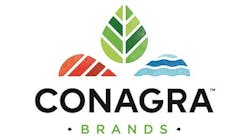The Vermont House of Representatives on May 10 passed a three-year-old bill that would require the labeling of genetically engineered food sold within that state. It still must pass the state senate and also appears destined for court challenges.
H.112, "An act relating to the labeling of food produced with genetic engineering," passed by a vote of 99-42, making Vermont the first state legislative body in the U.S. to pass a GMO labeling bill, according to one news report.
The vote came in the final days of the Vermont legislative session, and a vote in the state senate will not come until the next session, in the fall. So the earliest the act could become law is January 2014.
It also explicitly prohibits using the term "natural" to describe products that contain genetically engineered ingredients.
In addition to many legislators’ statements that “people have a right to know what’s in their food,” several lawmakers explained their no votes. "I support identification of genetically engineered ingredients in our foods; however I believe this to be of national jurisdiction rather than a state responsibility," said Rep. Marty Feltus of Lyndon, reflecting the comments of several legislators. "I also believe the probable consequences of market disruption and litigation will be detrimental to all Vermonters."
A ballot initiative requiring genetic labeling failed in California last November (51-49 percent). A similar initiative is expected to be on the Oregon ballot this November. In Washington, S.809, the "Genetically Engineered Food Right-to-Know Act," was introduced April 24 by Senator Barbara Boxer of California and Rep. Peter DeFazio of Oregon, both Democrats. The bill has nine cosponsors in the Senate (including one Republican and one independent) and 22 in the House.

